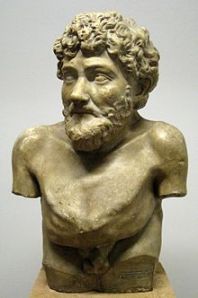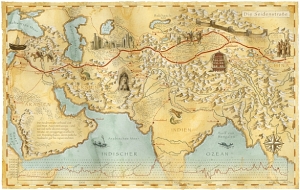I live upon this wretched solitary cliff
Like a bird of sorrow that shuns green
Branches and clear water: and withdraw
From my worldly loves, and my very self,
So my thoughts may fly swiftly to that sun
I worship and adore. And though they fail
To spread their wings as I wish, yet if I call
Still they fly back from other paths to this.
And in the instant that they reach the place,
Where I send them, ardent, happy, their brief joy
Surpasses every delight on Earth by far.
And if they could but re-create his noble
Form, just as the burning mind desires,
I might own my portion of perfect good.
by Vittoria Colonna (1490-1547)
Translated by A. S. Kline


You must be logged in to post a comment.